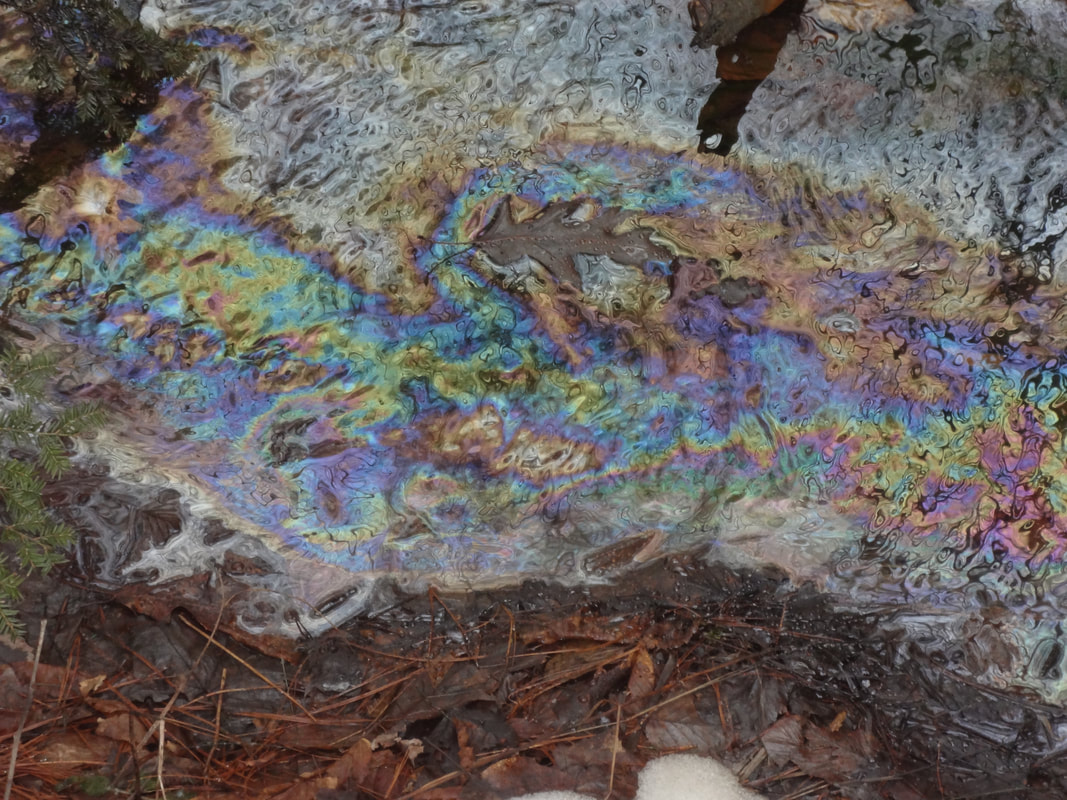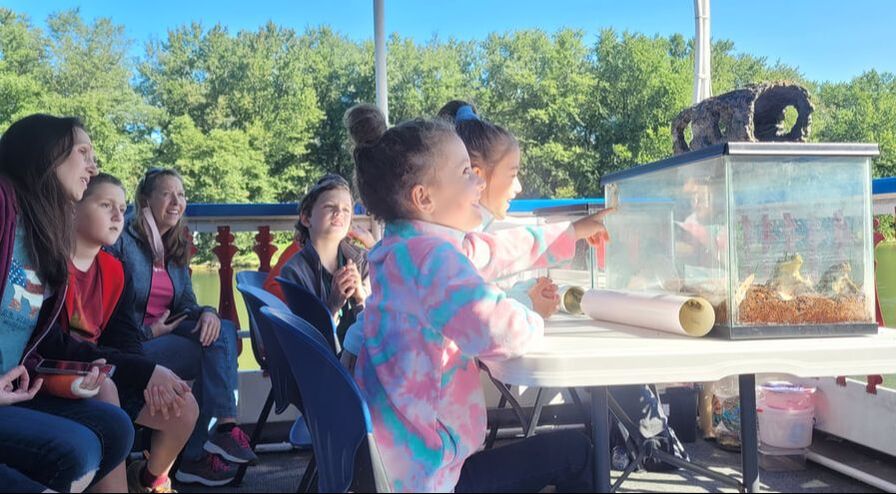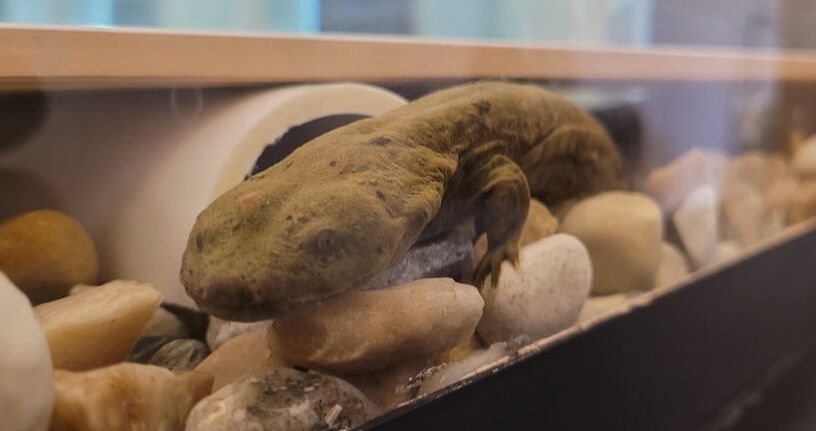|
More than 60 people participated in the Tuesday, Sept. 21, 2021, Floating Classroom session aboard the Hiawatha Paddleboat focused on the theme of "Raptors on the River."
Falconer Mike Dupuy offered programming on the upper level of the Hiawatha, focusing mainly on hawk and owl species using a few live birds. Meanwhile, on the lower level, Riverkeeper John Zaktansky presented information on bald eagles and ospreys.
0 Comments
The Nature Book Club was started by Carol Parenzan, the first Riverkeeper for the Middle Susquehanna Riverkeeper Association (MSRKA).
Its purpose is to engage readers in discussions about issues and experiences related to clean water, nature, and the environment. This is intended to help them be more informed when talking with friends, family and neighbors about these topics. The next meeting is Monday, Sept. 27, at the Middle Susquehanna Riverkeeper Association office at 112 Market Street, Sunbury, PA. Members will discuss the book "Escape to the Mountain: A Family’s Adventures in the Wilderness" by Marcia Bonta. All are welcome and you don't need to have read the book to participate. Update as of Sept. 24, 2021: Due to high water issues at the Hiawatha boat dock, our Sept. 25 Songs of the Susquehanna Benefit Concert Cruise has been cancelled. Check back soon for details about new concert opportunities in the spring and fall of 2022.
In May of 2019, Luzerne County musician Don Shappelle received an invitation to develop a river song aboard the Hiawatha Paddleboat near Williamsport for the Middle Susquehanna Riverkeeper Floating Classroom series. “I went into it with a few ideas, but basically had about 45 minutes to write a song with about 40 to 50 kids and their parents,” he said. “We got a song out of it – ‘A Happy River is a Clean River’ – and it was so much fun.” Update as of Sept. 24, 2021: Due to high water issues at the Hiawatha boat dock, our Sept. 25 Songs of the Susquehanna Benefit Concert Cruise has been cancelled. Check back soon for details about new concert opportunities in the spring and fall of 2022.
In May of 2019, Luzerne County musician Don Shappelle received an invitation to develop a river song aboard the Hiawatha Paddleboat near Williamsport for the Middle Susquehanna Riverkeeper Floating Classroom series. “I went into it with a few ideas, but basically had about 45 minutes to write a song with about 40 to 50 kids and their parents,” he said. “We got a song out of it – ‘A Happy River is a Clean River’ – and it was so much fun.” While hiking along one of the region’s waterways, you notice what appears to be a rainbow-hued oil spill floating across the surface of the water.
What should be the next step? “When you see a sheen like that, there is usually one of two causes,” said Randy Farmerie, program manager for environmental cleanup with the Department of Environmental Protection (DEP). “One is that it may be petroleum, but there is also an iron-reducing bacteria that we see quite a bit that causes the same looking sheen. If it is this sort of naturally occurring phenomenon, there’s really nothing we can do.” Sept. 7 Floating Classroom provided an overview on amphibians with a special focus on the hellbender9/8/2021 Nearly 60 people enjoyed the Sept. 7 Floating Classroom focused on amphibians aboard the Hiawatha Paddleboat in Williamsport.
Hellbender researcher Dr. Peter Petokas, Lycoming County Water Specialist Carey Entz, herpetologist Devin Welch and student assistant Lily Saar shared information about a wide variety of amphibians that can be found in our watersheds, the differences between them and reptile species and raised awareness about species of concern, such as the Eastern hellbender. Note: This is the second in a two-part package covering a recent hellbender release as part of a reintroduction pilot program. The first element, a feature story and photo gallery, can be accessed here.
Surrounded by posters and other informational resources on a large wall of a rural New York laboratory, a homemade 3-inch-square framed cross-stitch suggests that hellbenders are simply “less furry kittens.” It is a simple metaphor suggesting a not-so-simple truth. Note: This is the first in a two-part package covering a recent hellbender release as part of a reintroduction pilot program. The second element, a column by Middle Susquehanna Riverkeeper John Zaktansky, can be accessed here.
More than 10 dozen juvenile Eastern hellbenders were released into a tributary in the upper sections of the Susquehanna River basin on Saturday, Aug. 28, in a groundbreaking pilot program developed by Dr. Peter Petokas, of Lycoming College. "When we started studying the streams in the Susquehanna River watershed, we noticed that hellbenders were either disappearing or gone, so we partnered together to try and restart the species' populations in the upper portions of the region," said Petokas. "It really is a collaboration between Lycoming College in Williamsport, the College of Environmental Science and Forestry in Syracuse and the Bronx Zoo, which is part of the Wildlife Conservation Society in New York City.” A report in 2011 that Pennsylvania was poised to be the "Saudi Arabia of natural gas" inspired Colin Jerolmack, a native of the state who had since moved to New York City, to stay in Williamsport for eight months to research fracking and ultimately write a book.
"That just sounded huge, surprising, scary. I really wanted to know more about it," he said. "Around that same time, my adopted state of New York had put a moratorium on fracking (that later became a ban), and there were all these debates and protests. I personally wanted to learn how fracking was going to impact Pennsylvania, particularly in the middle region of the state where a large amount of fracking was set to take place, and where there had previously been population declines as jobs had disappeared." |
AuthorsRiverkeeper John Zaktansky is an award-winning journalist and avid promoter of the outdoors who loves camping, kayaking, fishing and hunting with the family. Archives
July 2024
Topics |








 RSS Feed
RSS Feed